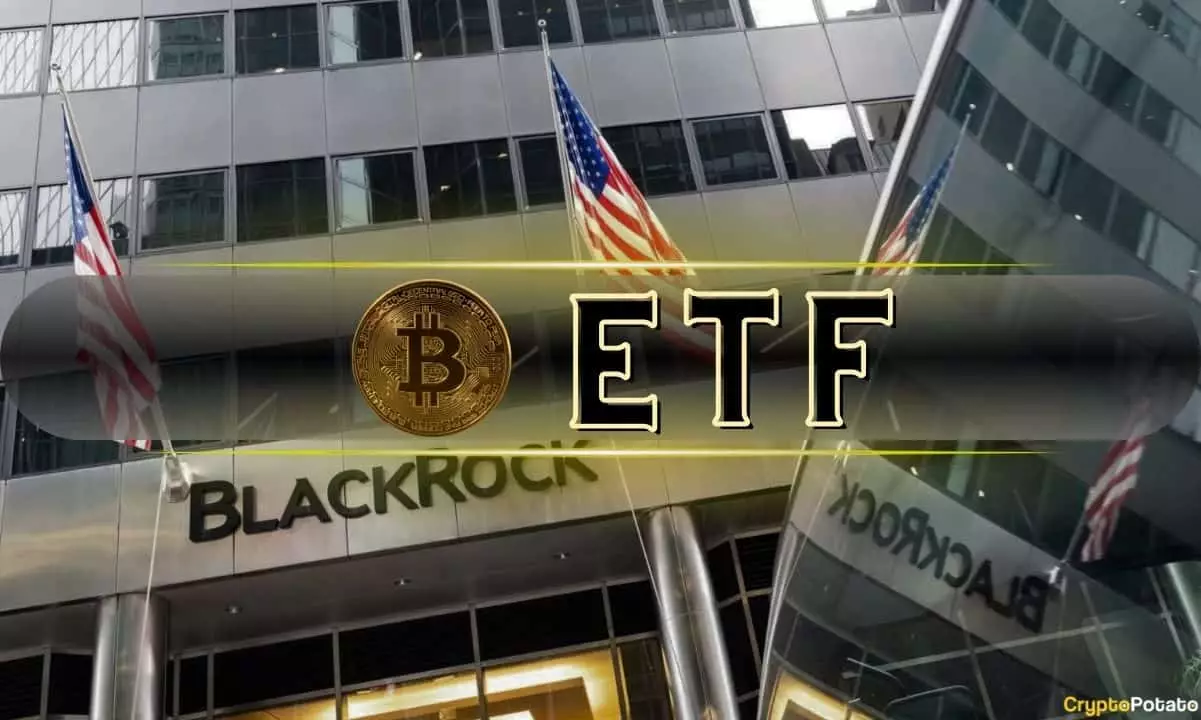On October 21, the cryptocurrency landscape witnessed a remarkable development with investors acquiring an impressive 4,869 BTC through BlackRock’s iShares Bitcoin Trust (IBIT), amounting to $329 million. This influx occurred against a backdrop of overall market retreat, raising questions about the dynamics at play. While several competing spot Bitcoin exchange-traded funds (ETFs) faced outflows during this time, IBIT defied the trend, marking a significant moment for Bitcoin investment vehicles. With all other distinguished funds, with the notable exception of Fidelity’s ETF, reporting either zero or negative inflows, BlackRock’s achievement is especially striking.
The broader picture indicates a total net inflow of $294.3 million across all funds, with BlackRock leading the charge due to six consecutive days of inflows, culminating in an astonishing $1.47 billion for the week. The total inflow for IBIT since its inception in January has now exceeded $23 billion, underscoring its outstanding performance and investor trust. ETF Store President Nate Geraci highlights the significance of this week’s inflows, which alone would position IBIT as one of the top five launches anticipated for 2024 among a staggering 570 ETFs. This excellent positioning speaks volumes about investor confidence in IBIT, contrasting sharply with the struggles of other funds in the market.
Despite the success of BlackRock’s fund, Bitcoin itself experienced a decline of 3.3% from its recent highs, dropping back to under $67,000. Such fluctuations are not uncommon in the cryptocurrency market, particularly during periods of heightened leverage and record futures open interest. As of the latest data point, Bitcoin appears to have regained some stability, trading around $67,500. This volatility raises critical questions about investor strategy and risk tolerance amidst the uncertainties of crypto assets.
In stark contrast to the bright spots in Bitcoin ETFs, Ethereum-related products fared much worse on October 21. Data from Farside Investors indicated a troubling net outflow of $20.8 million for spot Ethereum ETFs, compounded by Grayscale’s ETHE fund experiencing a staggering $29.6 million in outflows. This trend signifies a broader exit from high-fee funds that are driving investors toward more accessible, lower-fee alternatives. The total exodus from Grayscale, which has hit over $3 billion, illustrates a systemic issue affecting Ethereum funds, which seems unlikely to reverse in the short term.
As Bitcoin and Ethereum navigate their respective market challenges, the stark contrast between the inflow successes of IBIT and the outflow struggles of Ethereum ETFs highlights the complexities within the cryptocurrency investment space. The developments of October 21 reiterate the importance of maintaining a diversified portfolio and the need for investors to remain agile in response to market trends. Whether this bifurcation in ETF performance signals a long-term trend or is merely a fleeting moment in an ever-evolving market remains to be seen, but one thing is clear: the resilience of Bitcoin ETFs may pave the way for a new wave of investments in this dynamic landscape.










Leave a Reply